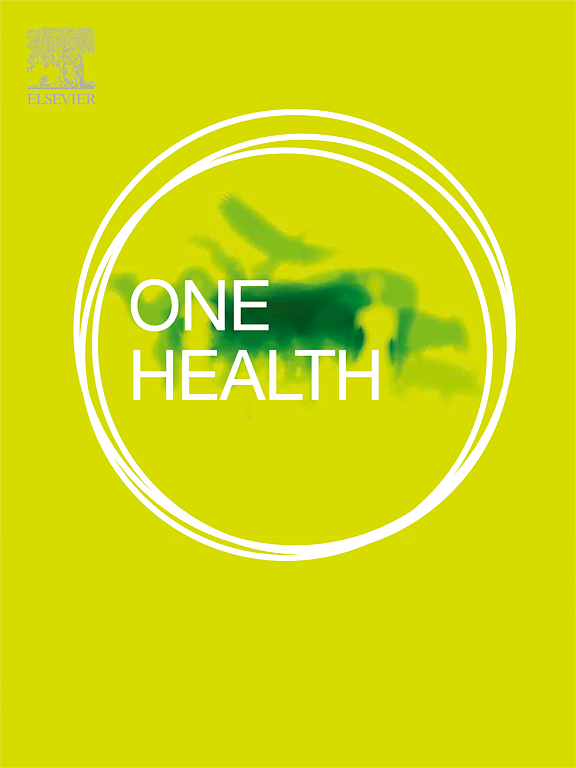加纳社区行动对动物疫苗接种、抗菌药物使用和农民福祉的影响:一项集群随机对照试验的研究方案
IF 4.1
2区 医学
Q1 INFECTIOUS DISEASES
引用次数: 0
摘要
在许多发展中国家,传染性动物疾病是牲畜生产力、粮食安全和福祉的主要制约因素。为了减轻这些影响,农民经常在没有专业建议的情况下使用抗菌素,这可能会在畜产品和食物链中产生药物残留,并产生耐药的抗菌素基因。最近的研究发现,传染性牛胸膜肺炎(CBPP)和小反刍兽疫(PPR)是对加纳反刍牲畜生产力和农民福祉影响最大的疾病。尽管加纳批准并提供了有效的CBPP和PPR疫苗,但疫苗的可接受性、可负担性、可及性和可获得性限制了它们的使用,只有15%的农民定期为其牛群接种疫苗。在确定障碍和潜在干预方案的形成性定性研究中,农民建议建立本地化的农民干预平台可以改善疫苗获取。其主要思想是建立平台,使牲畜疫苗信息交流,加强服务安排,并在同一地区的农民之间分担疫苗接种费用。现在我们希望正式检验这个假设。通过一项集群随机对照试验,我们旨在确定本地化农民平台对动物疫苗接种(主要结局)、畜牧生产中抗菌剂的使用、牲畜疾病导致的死亡率和畜牧农民福祉(次要结局)的影响。干预措施将在社区一级随机进行。该研究将涉及46个农村社区(研究集群)的460个农户。各组将以相同的概率随机分配到治疗组和对照组(各23个社区)。在基线时,以及在干预后6个月和12个月,按照现行的疫苗接种时间表,将对每个社区大约10个家庭进行抽样,以收集数据。我们将利用现有病例群进行意向治疗分析。这些发现将为应对传染性牲畜疾病对粮食安全、公共卫生和农民福祉的影响的战略提供信息。试验注册:https://pactr.samrc.ac.za/;ID。: PACTR202405854213937。本文章由计算机程序翻译,如有差异,请以英文原文为准。
Effects of community action on animal vaccination uptake, antimicrobial usage, and farmers’ wellbeing in Ghana: study protocol for a cluster-randomized controlled trial
Infectious animal diseases represent a major constraint to livestock productivity, food security and wellbeing in many developing countries. To mitigate these impacts, farmers frequently use antimicrobials without professional advice, potentially yielding drug residues in livestock products and the food chain, as well as resistant antimicrobial genes. Recent studies identified Contagious Bovine Pleuropneumonia (CBPP) and Peste des Petits Ruminants (PPR) as the diseases most negatively affecting ruminant livestock productivity and farmers’ wellbeing in Ghana. Despite the approval and availability of effective CBPP and PPR vaccines in Ghana, acceptability, affordability, accessibility, and availability of vaccination limit their uptake, with only 15% of farmers regularly vaccinating their herds. During formative qualitative research to identify barriers and potential intervention options, farmers suggested that establishing localized farmer intervention platforms could improve vaccine access. The main idea is the platforms enabling information exchange on livestock vaccines, enhancing service scheduling, and sharing vaccination costs among farmers living in the same locality. We now wish to test formally this hypothesis.
Through a cluster-randomized controlled trial, we aim to determine the effect of localized farmer platforms on animal vaccination uptake (primary outcome), antimicrobials use in livestock production, disease-induced mortality in livestock, and livestock farmers’ wellbeing (secondary outcomes). The intervention will be randomized at the community level. The study will involve 460 farming households across 46 rural communities (study clusters). Clusters will be randomized with equal probability to treatment and control (23 communities each). Approximately 10 households per community will be sampled for data collection at baseline, and at 6 and 12 months post-intervention, following prevailing vaccination schedules. We will conduct an intention-to-treat analysis using the available case population. The findings will inform strategies to tackle the impact of infectious livestock diseases on food security, public health and farmers’ wellbeing.
Trial registry: https://pactr.samrc.ac.za/; ID No.: PACTR202405854213937.
求助全文
通过发布文献求助,成功后即可免费获取论文全文。
去求助
来源期刊

One Health
Medicine-Infectious Diseases
CiteScore
8.10
自引率
4.00%
发文量
95
审稿时长
18 weeks
期刊介绍:
One Health - a Gold Open Access journal.
The mission of One Health is to provide a platform for rapid communication of high quality scientific knowledge on inter- and intra-species pathogen transmission, bringing together leading experts in virology, bacteriology, parasitology, mycology, vectors and vector-borne diseases, tropical health, veterinary sciences, pathology, immunology, food safety, mathematical modelling, epidemiology, public health research and emergency preparedness. As a Gold Open Access journal, a fee is payable on acceptance of the paper. Please see the Guide for Authors for more information.
Submissions to the following categories are welcome:
Virology,
Bacteriology,
Parasitology,
Mycology,
Vectors and vector-borne diseases,
Co-infections and co-morbidities,
Disease spatial surveillance,
Modelling,
Tropical Health,
Discovery,
Ecosystem Health,
Public Health.
 求助内容:
求助内容: 应助结果提醒方式:
应助结果提醒方式:


